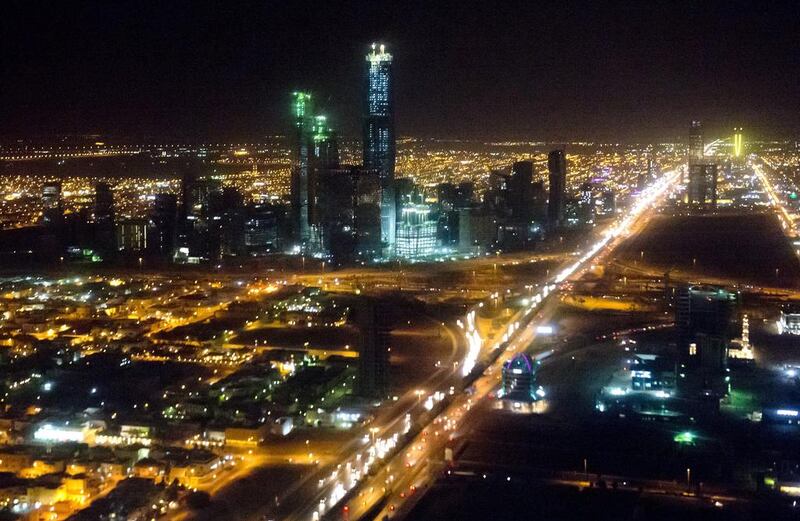Saudi Arabia, the Arab world's biggest economy, has approved a 72 billion riyals stimulus package for next year as part of a 200bn riyal four-year programme aimed at shoring up economic growth hit by fiscal consolidation and low oil prices.
The 72bn riyals tranche to be spent in 2018 includes: 10bn riyals to support private sector projects, 5bn riyals to boost exports and 7bn riyals in reimbursements of government fees to small and medium-sized enterprises (SMEs), according to a royal decree, carried by state-run Saudi Press Agency on Thursday.
The overall 200bn riyals programme covers 17 initiatives ranging from housing to exports, SPA cited the country's commerce and investment minister, Majed Al Qasabi as saying.
Saudi Arabia, the world's biggest oil exporter, is implementing an economic overhaul plan and various reforms under the 2020 National Transformation Programme and its over arching Vision 2030 agenda to help wean the country off oil income and create new revenue streams.
The stimulus measures will improve the competitiveness of a number of domestic sectors of the economy and provide employment opportunities for Saudi youth, the minister said.
_____________
Read more:
[ Saudi Arabia to return to growth next year, IMF says ]
[ Arabian Gulf economies to rebound next year on non-oil growth, report says ]
_____________
The first tranche of the package represents 2 to 3 per cent of the country's GDP, according to estimates of Oxford Economics senior Middle East economist Mohamed Bardastani.
“The package is only one element out of a wider range of reforms and measures introduced by the Saudi government to overhaul the economy – though this one seems to be more targeted in nature, as it is specific to the private sector,” he said. “The targeted nature and the scale of the package will certainly contribute positively and stimulate growth, especially when taking into account that the stimulus package extends over four years.”
As part of the fiscal reforms, the kingdom started tightening spending in 2016 to help bring down the fiscal deficit, which reached a record 367bn riyals in 2015 in the wake of plunging oil prices.
The fiscal consolidation has dented growth, which was also impacted by Saudi Arabia's compliance with a global oil output cut that has lowered its income from the sale of hydrocarbons.
The IMF has advised Saudi Arabia to slow down the pace of fiscal reforms to help nudge growth, which the fund projects will reach 0.1 per cent this year and rise to 1.1 per cent in 2018 .
Oxford Economics is forecasting a 0.3 per cent contraction for the Saudi economy in 2017 , the slowest pace of growth it has recorded since 2009.
The financing earmarked for the stimulus package does not include government spending on projects which will be a part of the kingdom's budget, the minister said.
The 17 initiatives announced on Thursday also include spending 21bn riyals on speeding up the housing projects for Saudis, 17bn to finance private sector projects, 12bn to support small and medium sized-enterprises and 5bn to boost exports through the creation of an export bank.
Under the Vision 2030 unveiled last year, the kingdom envisages boosting the private sector’s contribution to GDP to 65 per cent from 40 per cent, increasing SME contribution to GDP to 35 per cent from 20 per cent and raising the share of non-oil exports in non-oil GDP to 50 per cent from 16 per cent.






